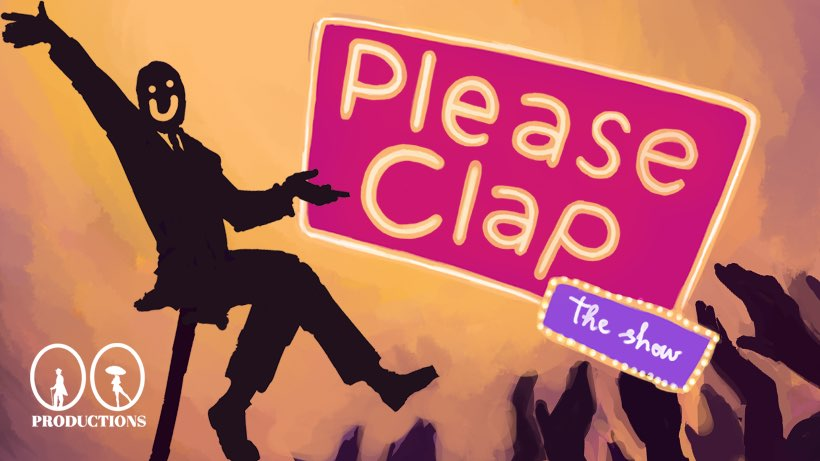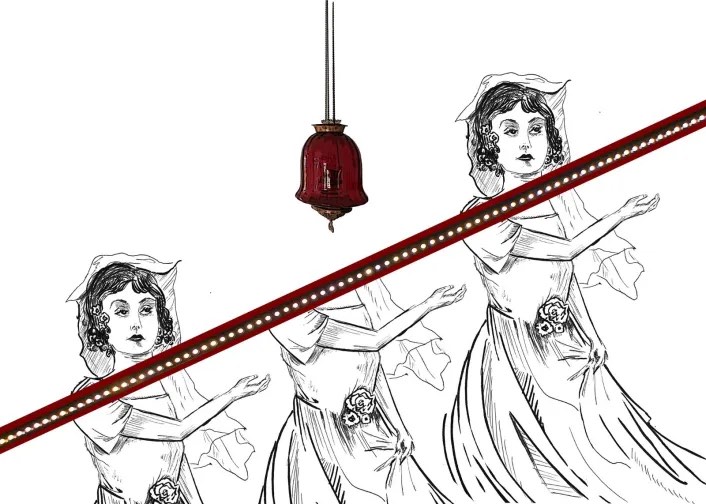The Ancient Greeks created the mosaic, using pebbles. The Romans imitated them, using smaller and more colourful pebbles. Fluminense FC animated the mosaic, using people and placards.
Fluminense FC are one of Rio de Janeiro’s 4 biggest clubs. They are a club of innovation. Some of the best players to have risen through the youth ranks at Fluminense’s Xerém academy include Richarlison, Thiago Silva, and Marcelo. Kayky, another one of their youth products, has recently joined Manchester City.
Fluminense’s success in innovation may be more prolific off the pitch- or rather, just off its side.
Among its various self-professed invention is the coinage of the Brazilian-Portuguese word for fan. The poet Coelho Netto referred to the Fluminense’s early 1900s female supporters, who would dress overly fashionably, as torcedoras because the women anxiously “torciam” (would twist and pull) their gloves from their hands as they watched the men play football. “While the men play, the women twist,” he wrote.
Yet, the mosaic, in the form of a tifo fan display, is probably Fluminense FC’s greatest creation. Mosaico displays involve coloured placards being placed on every seat for supporters to lift over their heads, so as to create a large image or message that covers a whole stand. As the revered writer and journalist Mario Filho wrote in his 1947 book “O Negro no Futebol Brasileiro” (The Black Man in Brazilian Football), this tradition was born at the Maracanã in a Fla-Flu match between Fluminense and Flamengo:
“The Fluminense fans wanted to be better than the Flamengo fans using confetti, streamers, balloons, and coloured inflatables. Each Fluminense fan would find on their seat a small bag of confetti, a packet of streamers, and a balloon, which were either green, white or red. Everything was well organised, with the stands split into three sections: red balloons were set down on the right side, white balloons down the middle, and green balloons on the left side.
(…)
“Each Fluminense fan would blow up their respective balloons, hold their confetti, and grab their streamers, waiting for their cue. There would be one prompt to throw the confetti, another to throw the streamers, and another to lift their balloons at head height. Very beautiful: it looked like a huge Fluminense flag, made out of several balloons.”
Like during Carnival, where various Escolas de Samba (Samba Schools) compete against each other for the best display of music and dance, the various Torcidas Organizadas (fan groups) contest in a tussle of pyrotechnics, songs and crowd tifos, complementing the competitive fixture occurring on the pitch. As Mario Filho tells it, Fluminense’s fan-mosaic meant that Fluminense had easily beaten Flamengo off the pitch, thanks to their miraculous mosaico display. A spokesperson for Mobilização Tricolor, one of Fluminense’s Torcidas Organizadas (fan groups) who have taken charge of organising the club’s crowd displays at the Maracanã, told me that each “festa” they create today “justifies the greatness of our tradition”.
‘Festa’ directly translates as ‘party’ or ‘celebration’, but the word more specifically captures the image of a thousand colourful people dancing together to the sounds of surdo drums and cuícas. So, underneath the surface of floating pieces of coloured paper are multitudes of fans dancing, chanting and jumping in a relentless attempt to mute the opposition fans’ voices. Each is partaking in a ritual that has survived generations.
The ambition of the fan group is to “maintain symbolic traditions” and, at the same time, to “always look to innovate”. If this balance is struck, Mobilização Tricolor produce crowd displays that “are always spectacular, magical, as if the football being played on the pitch and the festas in the stands merge into one”.
Since the beginning of the century Fluminense has become the first Brazilian club to create a “3D mosaico”, which happened before Ronaldinho’s first game for the club in 2015, and the first club in the world to create a pyrotechnics-mosaico, which occurred when they spelt out “FLUMINENSE” in the 2008 Libertadores final against LDU.
The spokesperson for Mobilização Tricolor told me how they go about coming up with new ideas: “We think as a group on what we are going to do, with the focus always being on creating an event which would be unprecedented. We struggle with the restrictions imposed on us, such as the Maracanã’s rules, the financial restrictions, bureaucratic restrictions or the weather conditions, which end up affecting some of our plans which then do not go ahead.”
Mobilizacao Tricolor’s long list demonstrates just how difficult it is for them to organise mosaics. Yet, above all, the declining number of supporters since the turn of the century has made the challenge of creating mosaics all the more challenging for Mobilização Tricolor. Brazil has the world’s worst ticket price to wage level ratios, making it the most expensive place in the world for fans to watch football. Brazilian clubs’ recent financial turmoil is just an earmark of the country’s failing economy, with Fluminense’s debt piling up to RS$649 million. There has also been serial negligence by the league’s main broadcasters. TV Globo, the country’s free-to-air television network, often chooses to push back kick off times to as late as 10pm, protecting the viewing times of its ever-popular novelas (soap operas).
There is now some mention of clubs forming a breakaway league, given the series of administrative and financial errors in the last 20 years. It could be a detrimental prospect for traditional Brazilian football fans looking for cheap match tickets- not to mention the moderately recent modernisation of the Maracanã, which has also emphatically repelled some other traditional supporters from attending fixtures.
There’s also the fact that Fluminense have under-performed since their last Brasileirão win in 2012. Winning less, inevitably, means smaller attendances, as the spokesperson explained to me. The spokesperson explained to me how the group looks to mobilise the club’s fanbase and encourage attendance: “Whenever we organise these actions,” he added, “we look to pick games which have some appeal- the festa we create in the stands can be the extra fuel for our players. Or, [it might be the case that] the advert we put out for some organised action will spread among fans in such a way that they will come down to the stadium in order to get behind it.”
The most recent blow to Fluminense’s low attendances has inevitably been the pandemic. Upon the return of domestic Brazilian football in the first leg of the state championship final between Fluminense and Flamengo, albeit behind closed doors, Mobilizacao Tricolor produced another historic mosaico. By covering the seats with green, white and garnet-red flags to spell out #ÉPeloFlu, they relocated the festa one would normally find beneath the surface of the mosaico to the online world.
There are fewer and fewer signs of optimism for fans in Brazil, and also for fans across the world. The mosaico display is arguably but one symbol for football’s international gentrification. Nowadays, it would not be uncommon for club owners and event organisers to create inauthentic, tone-deaf crowd mosaics as a method to enhance the overall corporate spectator experience. While Brazilian football has fallen well behind in financial terms, and thus struggled to retain the traditions of a genuinely authentic match experience, the hypothetical possibility of catching up with Europe is just as unappealing. The current political and economic climate in Brazil will unquestionably test the durability of Fluminense’s traditions of festivity and celebration, of its mosaico.
Regardless, Mobilização Tricolor constantly plans ahead to the future. The group is hopeful that Fluminense’s innovative mosaico traditions will survive. when I asked what it would be like to have all fans back in the stadium, without any capacity limits, the spokesperson for Mobilização Tricolor promised me one thing: that it would be “enormous, like Fluminense is”.
Image courtesy of Mobilizaçao Tricolor. / Translations my own.




